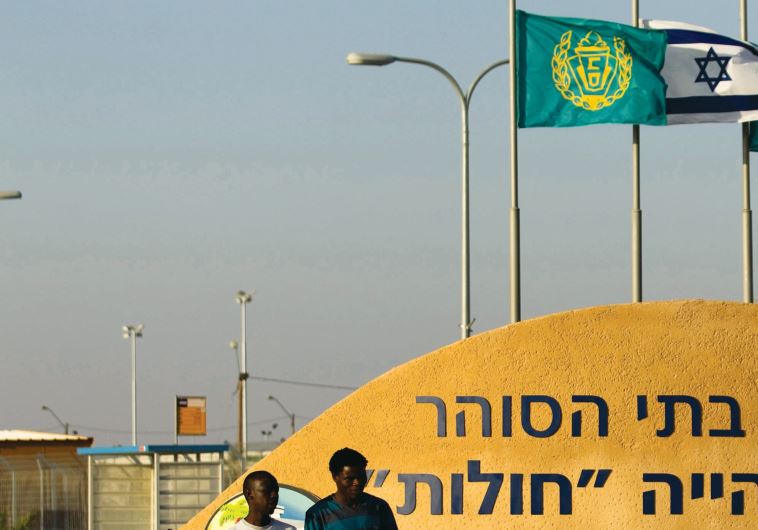Jordanian day workers are a boon to Eilat hoteliers, but no blessing for jobless Africans
Migrants or refugees, Eritreans and Sudanese are afraid to return home and feel they will never be accepted in Israel.
 AFRICAN REFUGEES are seen leaving the Holot detention facility.(photo credit: REUTERS/AMIR COHEN)
AFRICAN REFUGEES are seen leaving the Holot detention facility.(photo credit: REUTERS/AMIR COHEN)